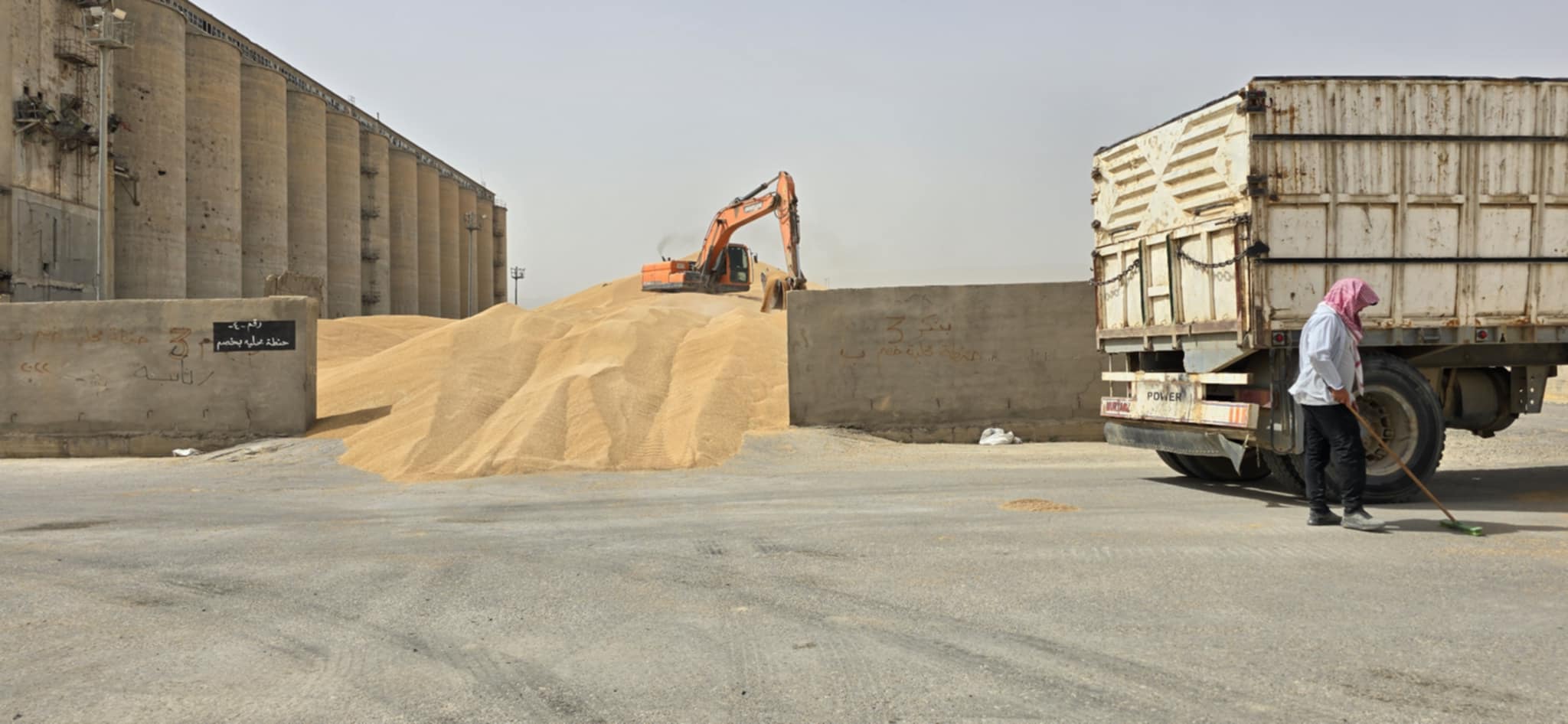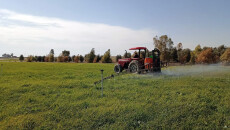A decision made by the Shingal State Silo has sparked concern and resentment among the region's farmers. Supervisors indicated that the silo would be unable to receive the farmers' entire wheat crop.
The Shingal silo started receiving grain crops from farmers last week, with a capacity of only 22,000 tons. However, according to the agricultural plan, Shingal farmers' production this year exceeds 40,000 tons.
Shahab Khidir Suro, a resident of the village of Gohbal in the Sinuny sub-district of Shingal District, Nineveh Province, was informed that the silo could only receive 22,000 tons of wheat from him. He would be forced to sell 30 tons of his crop in the market.
"I planted 400 dunams (100 hectares) myself using sprinklers, but they told me they wouldn't accept 30 tons of my crop," Shahab added. "In that case, we'll incur huge losses."
This decision comes as a lack of rain has caused Shahab to suffer huge losses, given that 2,000 dunams of his wheat crop were rain-fed.
"They were supposed to receive the entire crop from me as compensation for the losses we incurred."
Mohsen Barjaz, the Director of Shingal Silo told KirkukNow, according to the agricultural plan, the district's farmers' wheat production exceeds 40,000 tons, “but we are only able to receive 22,000 tons because the silo has not been rehabilitated and only has six storage areas."
“We are seeking to transfer the quantities we are unable to receive to the Baaj silo, which is the closest in the area.”
In August 2014, the extremist militants of the so-called Islamic State of Iraq and Syria ISIS took control of Shingal and large swathes of Iraq. During the clashes and military operations to retake the district, parts of the silo, which had a capacity of more than 40,000 tons of grain crops, were damaged.
By 2024, only four out of nine million donums of wheat and barley were planted in Nineveh province according to agricultural practices.
Wheat production in Nineveh alone was more than 1.393 million tons on an area of more than 3.5 million donums. According to the Central Statistical Board, in 2023 the area planted with wheat and barley was over five million donums.
Last week, a higher committee of the Ministry of Agriculture opened the door for Shingal farmers to deliver their crops to the Shingal silo.
"We are seeking to transfer the quantities we are unable to receive to the Baaj silo, which is the closest in the area," Barjaz said but this step requires approval from the Iraqi Ministry of Agriculture.
However, Khidir says, "Transferring the crops to another silo is very costly."
This year, an estimated 190,000 dunams of land within the borders of Shingal were planted with wheat, but only 64,000 of them are suitable for harvest due to the poor rainfall.
The director of the Shingal silo said, "The solution to this problem next year is to rehabilitate the silo and increase the receiving crops from farmers."
Part of Nineveh province including Shingal is a disputed area between Baghdad and Erbil under Article 140 of the Iraqi constitution and has disputes over the ownership of large areas of agricultural land, like many other areas.
Nineveh Province is considered to be a rich agricultural area, according to the Central Statistics Agency, 40 percent of the population live in rural areas and is expected to be the leading in wheat production as in previous years.
The Iraqi Council of Ministers decided in mid-October 2024 to pay farmers 800,000 (USD570) to of 850,000 Iraqi dinars IQD per ton of wheat, but the land outside the agricultural plan will receive their products at the market price, which ranges between 450,000 to 650,000 dinars per ton.






